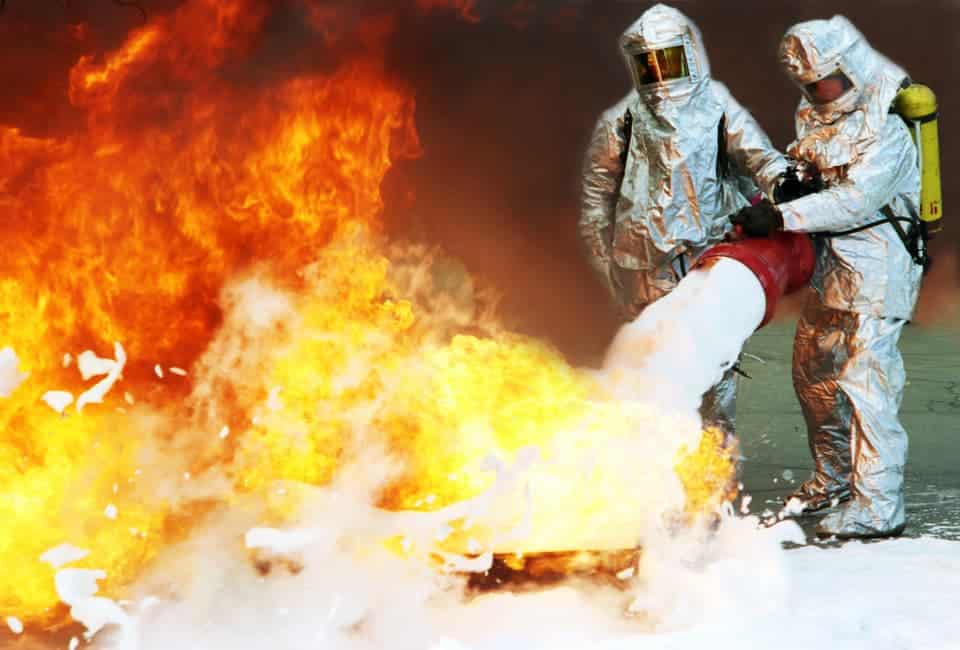AFFF lawsuits allege that fire safety equipment and chemical companies failed to warn about the cancer risks AFFF exposure could bring. If you were exposed to AFFF and was later diagnosed with cancer, you may be entitled to compensation for lost income, medical expenses and pain and suffering, among other damages. We are working with some of the most experienced AFFF cancer lawyers across the country. There is no charge and no fee unless you get an award or settlement. For a free (no obligation) case evaluation, call our toll-free number 24/7 at 1-800-992-6878 or fill out an online contact form.
What is AFFF?
Aqueous film-forming foams (AFFF) is a man-made substance that military and firefighters have used since the 1960s to put out petroleum-based fires. This substance was also used at airports for commercial use. While AFFF has successfully fought these fires for over 50 years, mounting scientific evidence has proven that AFFF exposure could be hazardous to one’s health.
What Potential Dangers Come From AFFF?
Many studies link this firefighting foam to cancer. AFFF contains per- and polyfluoroalkyl substances (PFAS). Referred to as “forever chemicals,” this substance binds to proteins in the blood and continues to accumulate with each exposure. What makes this even worse, is PFAS chemicals have been linked to an increased risk of cancer. Some of these cancers include:
- Breast Cancer
- Kidney Cancer
- Liver Cancer
- Non-Hodgkin’s Lymphoma
- Ovarian Cancer
- Prostate Cancer
- Testicular Cancer

Who is Most at Risk?
Those who would be most at risk are the airport, firefighter and military personnel who have had direct exposure while using AFFF. However, anyone within close proximity to the substance could have been exposed. Some studies even indicate that 99% of Americans have PFAS present in their bodies.
AFFF Timeline
What We Know About AFFF Cancer Lawsuits
Class action lawsuits are being filed against several fire safety equipment and chemical companies for their alleged inadequate warnings and lack of instructions on how to handle and store AFFF. Many of these lawsuits state that if people knew of the dangers that AFFF posed, they would have used other substances and would not have been diagnosed with cancer. Some lawsuits have clients who have not been diagnosed with cancer but will require medical monitoring for the rest of their lives due to their exposure to AFFF.
Contact an Experienced AFFF Cancer Lawyer Today!

If you or a loved one were exposed to AFFF and were later diagnosed with cancer, you may be able to receive compensation for your lost earnings, medical bills and pain and suffering, among other losses. We work with some of the most experienced AFFF cancer lawyers in the country, who are ready to talk to you about a potential case. Call us today toll-free 24/7 at 1-508-876-3579 or fill out an online contact form for a free (no obligation) case evaluation.





Social Security Disability
RI Social Security Disability
MA Social Security Disability